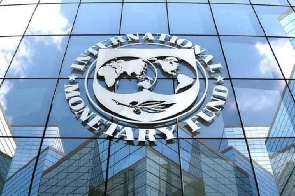COVID-19 threatens decades of progress by African countries on towards becoming advanced economies, and world finance leaders have been warned the continent needs huge investment in the coming years.
International Monetary Fund managing director Kristalina Georgieva told a summit in Paris that an additional US$285 billion by 2025 will be needed to respond to the pandemic.
But this figure would need to roughly double in order to fund the investments needed to boost growth and return the continent to its income convergence trajectory with the world’s richest countries, she added.
The pandemic caused Africa’s GDP to shrink by 1.9%, and although the IMF projects global growth to reach 6% in 2021, it only predicts 3.2% in Africa.
“This is a dangerous divergence,” said Georgieva.
“It ought to be the reverse: Africa needs to grow faster than the world – at 7-10% – to meet the aspirations of its youthful populations and become more prosperous and more secure.”
The $285 billion figure would cover vaccine rollouts; spending to support sectors of the economy and prevent permanent ‘scarring’; and ensuring adequate buffers are put in place, such as reserves.
This is at the low end of the IMF’s estimates: if further economic shocks occur, it could rise as high as US$485.9 billion.
Such shocks would take the amount needed to return Africa to convergence from US$518 billion to US$719 billion, according to a note (pdf download) published by the fund.
Raising the money will require “transformational domestic reforms”, Georgieva said, as well as debt relief, concessional loans and an international tax agreement that gives a “fair distribution” of revenues.
“For instance, digitalisation can improve tax administration and revenue collection, and the quality of public spending,” she said.
“And with radical transparency, Africa can tap into new sources of finance such as carbon offsets.”
But the IMF is concerned that without external financing (from both public and private sources) will leave governments needing to embark on deeper fiscal consolidation, which reduces near-term growth.
The note warned of a “vicious circle” with authorities’ ability to pursue productivity-boosting investment hampered, “leaving them trapped on a path of low growth and high debt”.
Business News of Saturday, 22 May 2021
Source: publicfinancefocus.org
Coronavirus: Africa needs US$285 billion to fight off pandemic impact - IMF
Entertainment












